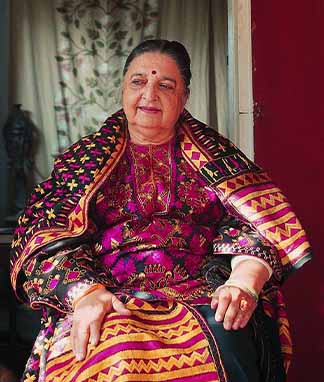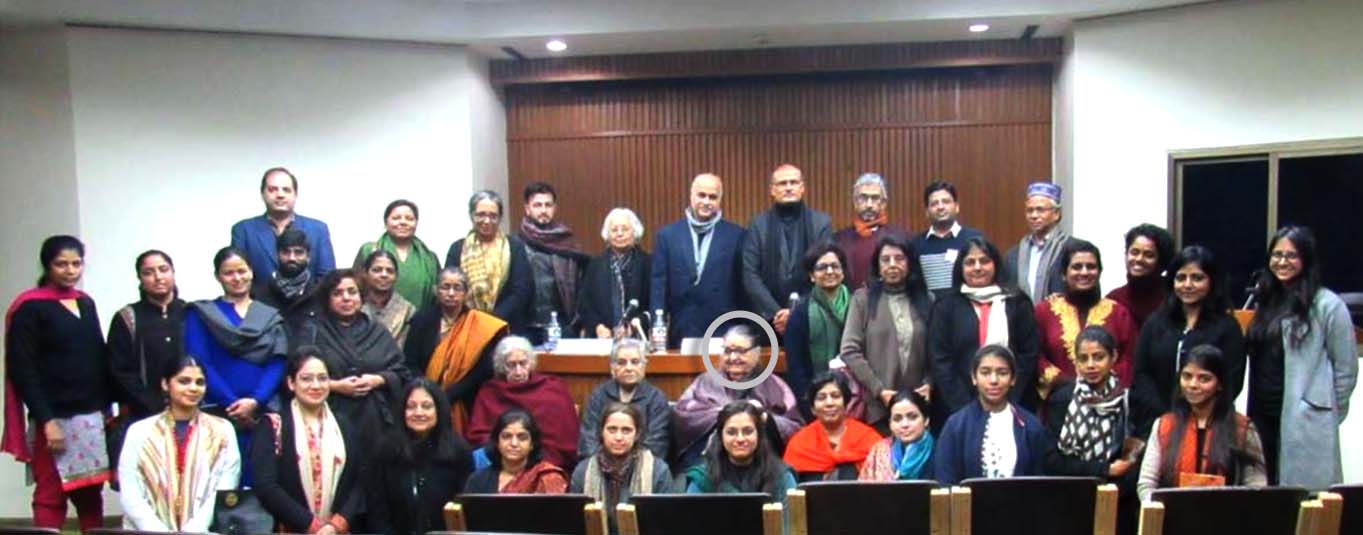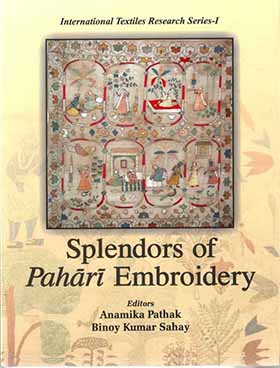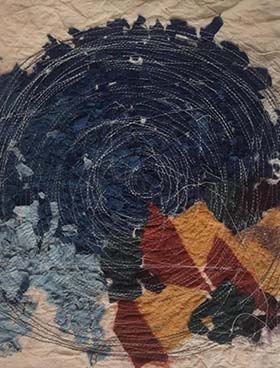
Mrs. Jasleen Dhamija
A Craft Revivalist
A Tribute by Toolika Gupta
A homage must paid to the pioneers, the pioneers who steered us towards craft revivalism. To Jasleen ji, I bow my head in reverence. Thanks to my upbringing at the Lady Irwin College, I believe in the courage of women, and I admire them. A complete woman is someone who has the ability to see what needs to be done for others and picks up from there, she plans and executes, she nurses and nurtures what she thinks is important. She is someone with an innate sense of appreciation for hard work and beauty, she works for preservation of her culture and traditions, and creates new paths along side. One such woman that I admire is Jasleen Dhamija. For me the craft of phulkari is incomplete without the mention of Jasleen Dhamija.
She was born in an undivided India in 1933, in the land that is now Pakistan, she grew up in Delhi, studied at the Miranda House College of Delhi University and wrote many books and articles on Indian handicrafts. She has worked with Kamladvi Chhatopadhyaya in the Government of India, has served on the Handicraft board and has taught at the universities. Her major contribution is the research that she has done in the craft sector and the work that she has done for the rural development. Jasleen ji has edited many books, her book as editor with Jyotindra Jain – ‘Handwoven fabrics of India’ has many noteworthy articles. In 2019, when the exhibition of Baluchari was on at the National Museum, it was a pleasure to read the book on Baluchari sarees also edited by Jasleen Dhamija ji.
In the early 1990s, when I started studying textiles, our textile appreciation course, taught us about various embroideries of India. Those were the days of libraries and I was fond or reading. The articles on phulkari were usually by Jasleen ji. Her beautiful description of the fabrics and the community traditions made me read on. I admired the way the stitches were, the colours, the background fabric which was a simple khadi fabric, could be made to look so gorgeous and resplendent with colour, with the untwisted silk yarns. It was close to a miracle. But I was not from Punjab and had never seen a phulkari in my life. This knowledge of the amazing tradition was brought to my attention thanks to Jasleen Dhamija. The beauty that the women of Punjab, embroider this fabric in their free time, with immense love to gift it to their near and dear ones, their daughters, their daughters-in-law, relatives and friends made it so special for me. Her writings brought to life the sociological aspects of the embroideries, the information about the ‘baghs’ and the ‘chopes’; the stitch types, the motifs, and beautifully described how these objects were so close to the heart of the rural women in Punjab.
For a long time before phulkari became commercial, it was a special embroidery. Today it’s motifs and styles are copied heavily, they are either printed, machine embroidered or crudely executed by hand in the name of phulkari. The objects have lost the significance that the authors like Jasleen Dhamija had apprised us about. It is interesting to note that now mothers do not embroider phulkari but buy it, or if they are ultra-rich, they commission it to the designers to get it ‘hand embroidered’ for their daughters. These are interesting times that we live in. We wear power loom and mill made fabrics, because they are cheaper and yet ‘promote handloom’, hoping that everyone else should wear Khadi or handloom.
I deeply admired her and I remember my last meeting with her in a conference of the Textiles and Clothing Center, New Delhi, which was held in the memory of another great legend – Dr Lotika Varadarajan in the January of 2018. She spoke about how both Lotikadi and she were peers at the Miranda House, it was so good to hear her. The detailed report can be found here – https://www.tcrc.in/seminar-1-symposium-in-honor-of-dr-lotika-varadarajan/. That day, I presented a paper on the ‘Shoe Question of British India’ and she complimented me on my research abilities and the work that I had done. Coming from a doyen it was a very humbling experience for me.
 [This photograph was taken after the Seminar on the 7th of January 2018.]
[This photograph was taken after the Seminar on the 7th of January 2018.]
Jasleen ji, you left for your heavenly abode on the 4th of March, we will miss you. The textile community of India will remember you as a pioneer in the field of documenting our heritage and especially the phulkari. TCRC and IICD pay their floral tributes to you.
Toolika Gupta
Director – Indian Institute of Crafts and Design
Secretary – Textiles and Clothing Research Center.


